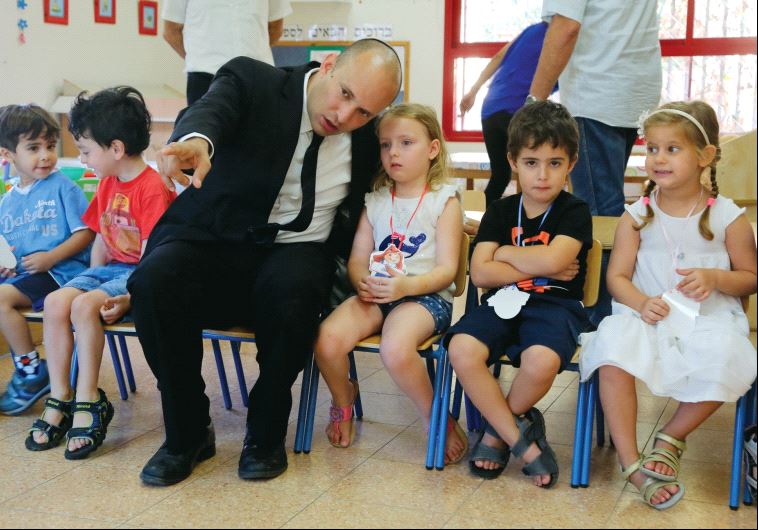Challenges ahead as school year begins
The education system faces a number of major challenges: overcrowding, socioeconomic and sectorial gaps, and low student performance.
 Education Minister Naftali Bennett meets with pupils at the start school year(photo credit: SASSON TIRAM)
Education Minister Naftali Bennett meets with pupils at the start school year(photo credit: SASSON TIRAM)